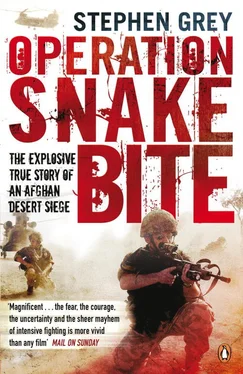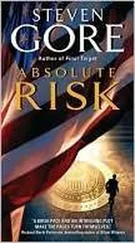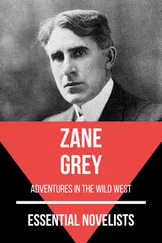They won’t be able to use battalions or companies in sweeping movements any more. They’ll have to reconcile themselves to war being fought by junior commanders down to lance-corporals.’
Lieutenant General Sir Harold Briggs, director of operations, Malaya Emergency, 1950.
[12] Quoted by journalist Harry Miller in John A. Nagl, Learning to Eat Soup with a Knife (Chicago: Chicago University Press, 2005), p. 74.
On board an RAF Hercules, Kabul to Kandahar, 7 October
Brigadier Andrew Mackay was finally heading for Helmand. At his side was his military assistant, Captain Euan Goodman. They were clutching a pile of briefing notes.
The next day he would reach his new headquarters in Lashkar Gah and two days later he would assume command of the multinational brigade of more than 7,000 soldiers in Helmand as well as all the British servicemen and servicewomen deployed across Afghanistan.
Mackay believed in the mission but was not someone who approached it with blinkered eyes. It was an irony that the more you cared about the Afghan war, the more critical your voice became. Those who hardly cared rarely bothered to dissent.
Up in Kabul these last two days, the brief on the politics of Afghanistan had not been encouraging. One senior western diplomat told him bluntly that President Karzai was ‘not the president we want or need’. Karzai was isolated and increasingly erratic. He could not manage governance. He was surrounded, many said, by corrupt and venal ministers.
The advice the brigadier was getting was widespread in military and diplomatic circles. One senior British military officer spelled out to me what was now an accepted view: ‘I think there are issues right at the top of the government in Afghanistan from Karzai downwards. There are question marks over whether even his own family is closely involved in the drugs trade. My understanding is that is probably the case.’ Even some of Karzai’s own advisers told me the same story. One senior Afghan diplomat said, ‘Every time there is a corrupt minister identified, the western governments force Karzai to sack him. But each time this corrupt man is reappointed to another post. You can forgive the president for this once or twice. But, after a while, you have to ask yourself: why is this man protecting these people?’
For Mackay, these briefings made for depressing reading. How was the British army supposed to support the Afghan government and extend its reach of power in Helmand unless the president took decisive steps to purge the warlords whose actions helped to encourage the Taliban?
Back in London, the atmosphere had been no more positive.
Perhaps it was a matter of timing. The build-up to his deployment came when the British government had seemed in virtual meltdown. This was when a major mortgage lender, Northern Rock, had collapsed and had had to be bailed out; when Gordon Brown had threatened a general election and then changed his mind; and when Brown was accused of playing politics over the army when he visited Iraq during the Tory conference. This was a time when one could find officials in Whitehall describing a prime minister who was dithering and inaccessible, did not understand what the military was up to and was hardly interested anyway because Afghanistan was not going to win or lose votes.
Mackay himself, as he toured the offices of civilian and military experts and leaders before he left for Afghanistan, had been struck by what he found to be a succession of relentlessly downbeat assessments. He questioned whether, at least in London, there really was the will to succeed. There seemed to be plenty of advice – but a paucity of anyone with solutions.
Meeting one general, Mackay told him how struck he was by the negative views he was hearing. ‘Have we actually got the will to succeed here?’ he asked. The general replied that Britain had three options – to stay in Helmand and provide the resources to succeed; to muddle through; or to get out. The general said, ‘You can guarantee that it will be the second option that we pursue: constant muddling through, making it up as we go along, being reactive, not proactive.’
For Mackay, it had been a long journey to take up command in Helmand. At fifty, he was one of the oldest commanders of an operational brigade in living memory. Born in Elgin, Scotland, and educated in Edinburgh, he was the son of an army musician. He himself took an unusual path to the military, becoming an officer after a three-year career serving as a policeman in Hong Kong, including running a drugs squad.
After returning to get his army commission, Mackay had seen combat in Northern Ireland as a junior officer and returned there again as a company commander. Getting a degree from the Open University, he rose through the ranks and finally took command of his own regiment, the King’s Own Scottish Borderers. But he was disappointed that it was not deployed on operations during his time.
Deployed in his career to senior staff posts in Bosnia, Kosovo and Iraq, Mackay had established his reputation not in running combat operations but in thinking through what happened afterwards, what the army called ‘stabilization’. A critic of what he described as the incompetence and dysfunction of what happened after the 2003 invasion of Iraq, Mackay had turned his 52 Brigade, which he took over in December 2004, into specialists in addressing the obvious shortcomings – namely the total lack of planning for how to establish a stable government and the rule of law after Saddam’s army was defeated. He proposed to have a small but deployable headquarters that could plug that gap. Headquartered at Edinburgh Castle, 52 Brigade was what the army called a ‘Type B’ brigade. In command of several regiments when they were back at their bases and with a small role in running the annual Edinburgh Tattoo, it was not earmarked for any operational duties. Mackay started with barely seven full-time staff officers working for him that were in any way deployable on a mission. Then in late summer 2006, as the Afghanistan venture escalated and the Iraq war de-escalated only slowly, the army ran out of ‘Type A’ brigades. Mackay got a call to say his brigade was earmarked to be promoted to the first division and he was to lead its deployment to Helmand for the ‘winter tour’ beginning October 2007. His operational brigade staff would swell from seven to 150.
But gaining the command would also win him some enemies. Some in the army spoke of him and the brigade with undisguised scorn. Was the brigade that helped to run the Edinburgh Tattoo really suitable to run an actual war? Were his men simply B-list players? Did they actually know how to lead and fight?
Over the previous year, Mackay had felt like a student: getting to grips with Afghanistan, with thinking on counter-insurgency, and with the principles of management of a large organization.
He decided he should aspire to run his brigade in Helmand along the lines dictated by General Templar, who ran the Malaya campaign: [13] As described by John Cloake, in Nagl, Learning to Eat Soup with a Knife , p. 90.
1. Get the priorities right.
2. Get the instructions right.
3. Get the organization right.
4. Get the right people in the organization.
5. Get the right spirit into the people.
6. Leave them to get on with it.
One of the most striking things Mackay found was the lack of clear direction from above. There was more a sense of that ‘we were making it up as we go along.’
Ever since the disasters of the First World War, western armies had adopted an important doctrine called ‘Mission Command’. A commander set out his intentions and his basic objective. And then a subordinate was left to work out how to accomplish that mission in detail. It was the opposite of micro-management. It brought flexibility and speed and brought out the best in people. But a strategy for counter-insurgency, thought Mackay, had to be developed over the long term. It wasn’t something that could simply be thought anew every six months when a new brigadier came along. His formal orders from British headquarters turned out to be simply a cut-and-paste version of those to the previous commander. They were ‘riddled with errors’. He had been surprised to find they got the name of the British task force wrong in several places. Mackay put that down to careless staff work. But in some ways it might appear symptomatic.
Читать дальше












